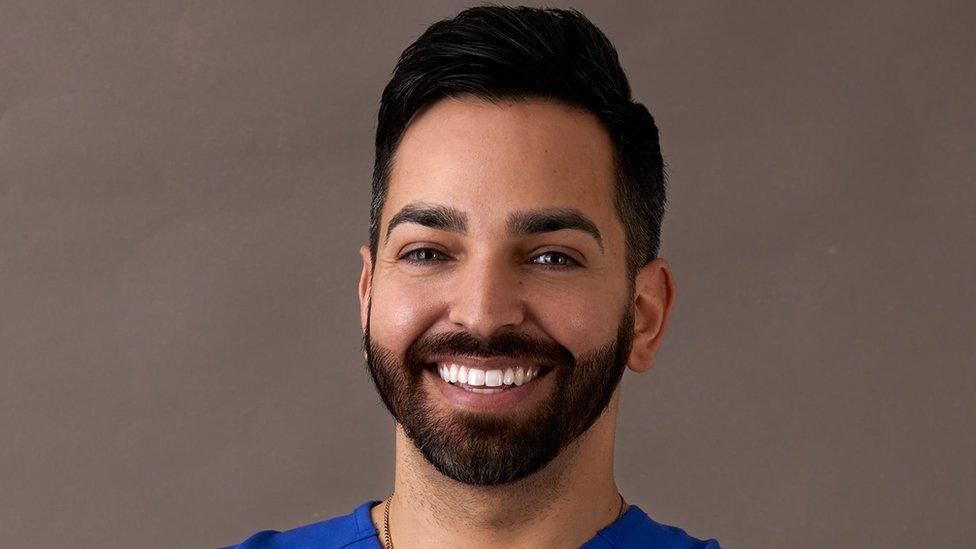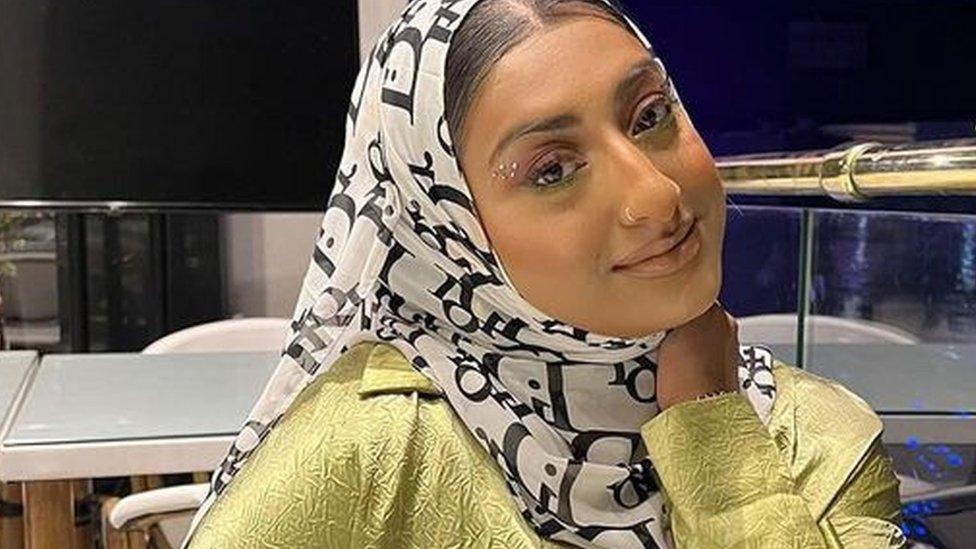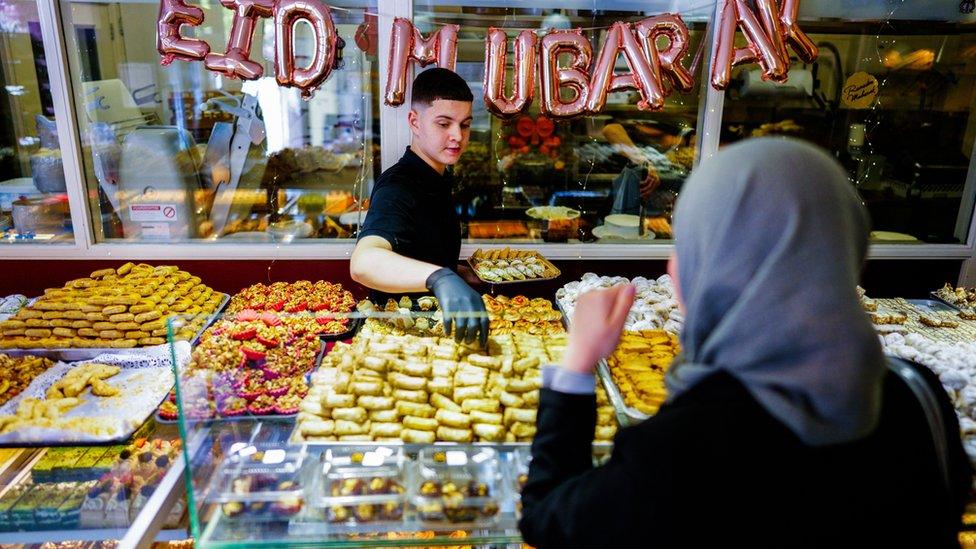Ramadan: How to look after your skin during holy month
- Published

Dr Muneeb Shah has more than 17 million followers on TikTok
Ramadan is a month of physical sacrifice and spiritual repentance, where devout Muslims refrain from eating and drinking between sunrise and sunset.
It symbolises dedication, reflection and discipline.
The act of fasting gives insight into the anguish and suffering endured by the millions of people living in famine and poverty around the world.
However, not having enough water, disturbed sleep and a poor diet can impact your body and skin.
TikTok dermatologist the Derm Doctor, otherwise known as Dr Muneeb Shah, is encouraging people to take more care of their skin during the holy month.
"When I was growing up I didn't have many South Asian friends and Muslim friends or friends that were fasting," he tells BBC Asian Network.
"One of the cool things about social media is that no matter where you are in the world you can find people that are sharing these experiences."
Since posting his first TikTok in 2020, Dr Shah now has more than 17 million followers and is the most followed dermatologist on the platform.
He aims to debunk the myths surrounding skincare and highlight the positive impact this month can have for some people.
"A lot of skin care conditions like psoriasis and acne are all inflammatory conditions, and some studies show that conditions like psoriasis actually decrease during Ramadan for people who are fasting," he says.
So what are Dr Shah's top tips for looking after your skin during Ramadan?
Hydrate, hydrate, hydrate
During fasting, your skin can easily lose moisture and lack hydration, so Dr Shah - who is fasting - advises people to use more hydrating products.
"Praying five times a day and washing your face after your pray can be really drying for some people," he says.
"You should make sure to moisturise after you wash your face, as it is really important, otherwise it can irritate the skin barrier."
Maintain a balanced diet
Dr Shah explains "some people are going to say their skin gets worse during Ramadan because you are changing your diet significantly, and that means what you're doing when you break your fast".
Heavy eating at sunset and before sunrise, and missing out on nutritious food groups due to the limited time eating, may have a negative impact on your skin.
Dr Shah encourages people to break their fast with food they enjoy, but believes moderation is key.
"Fried foods have no relationship with acne but eating anything in excess can affect the skin.
"I tend to eat a lot of fried foods when I break my fast, I don't think it affects my skin but other people will notice it will affect their skin."
Keep it simple
During Ramadan, diet and sleep patterns significantly change, so many might modify or update their everyday skincare routine.
But Dr Shah says you can still use your normal products while fasting.
"There's a common misconception that you can't use your traditional skincare products when you're fasting," he says.
"I think you can still use your classic moisturisers and sun creams when you're fasting."
His simple three step routine includes cleansing, moisturising and adding sun cream for the day. And for night, he recommends cleansing, applying a retinol and moisturising the skin again.

Farah also believes there's a lot of misconceptions about what skincare products you can use during Ramadan
Like Dr Shah, content creator Farah Ferrero is also using her social media platform to educate her followers on skincare during Ramadan.
The 29-year-old from Leicester believes there is a lot of misinformation online about what skin care products you should and shouldn't use during the holy month.
"Some people avoid using products with alcohol in them during Ramadan," she says.
"Toners contain alcohol but as a Muslim I'm not consuming it and it's not intoxicating me, so it's fine to just put on to my skin."
Farah also recommends double cleansing during Ramadan.
"Double cleansing involves removing makeup first using an oil-based cleanser or micellar water, and then I cleanse again to clean deeper in the pores."
She believes transparency is key during Ramadan and is sharing her skin care journey with her followers.
"Sometimes when I'm feeling lazy, I will use a wipe and I do get negative comments on social media for it because it's not really good for your skin," she says.
"But, when I've just had a long day at work, I've just come home and cooked. I just want to do the easiest possible things and that's okay to do."
Listen to the full interview on Asian Network News Presents on BBC Sounds.


Follow Newsbeat on Twitter, external and YouTube, external.
Listen to Newsbeat live at 12:45 and 17:45 weekdays - or listen back here.
- Published10 April 2024

- Published1 April 2023

- Published29 March 2023

- Published21 March 2023

- Attribution
- Published21 March 2023
